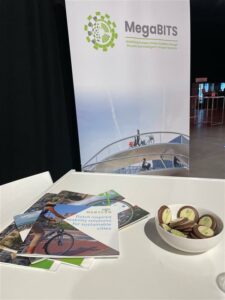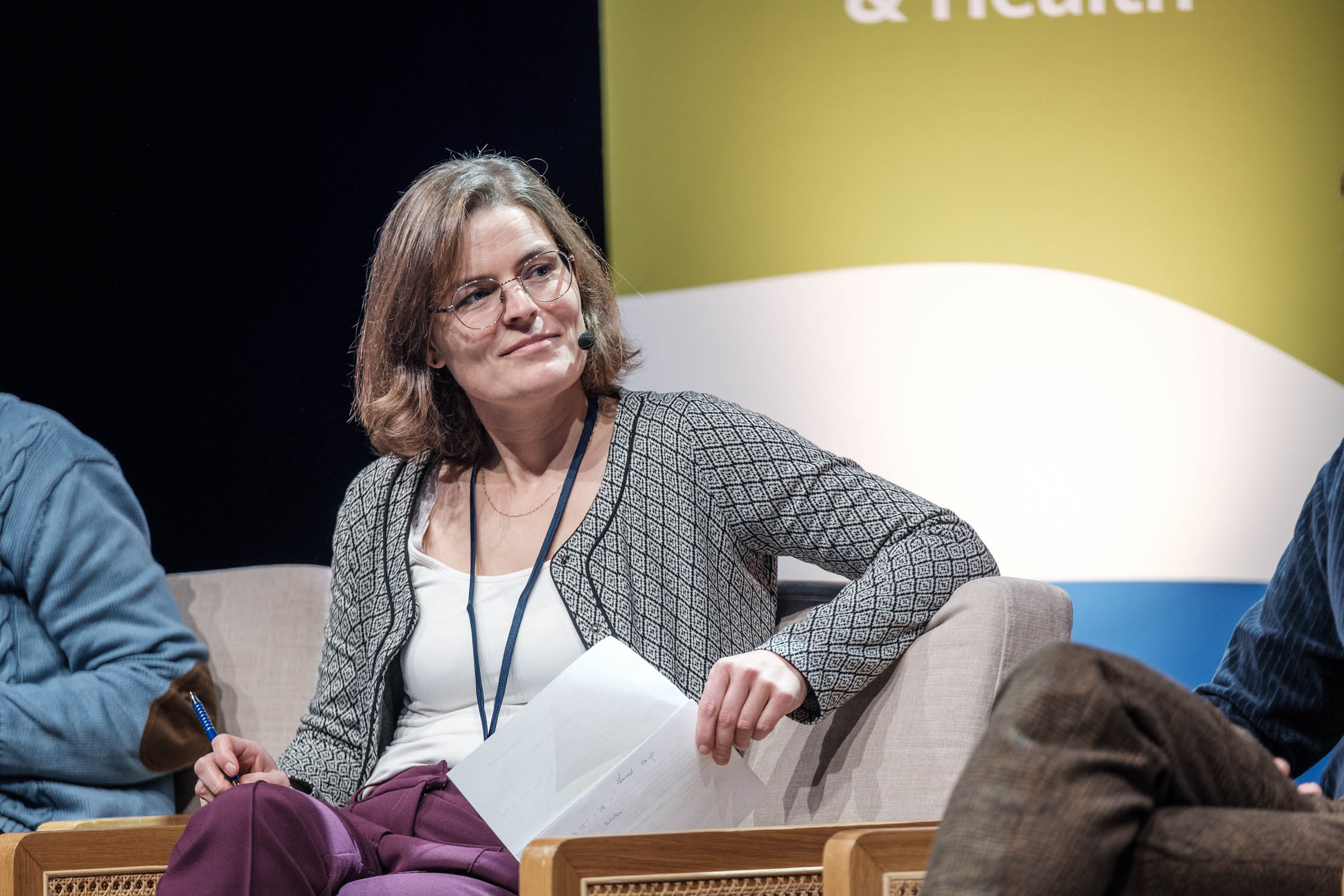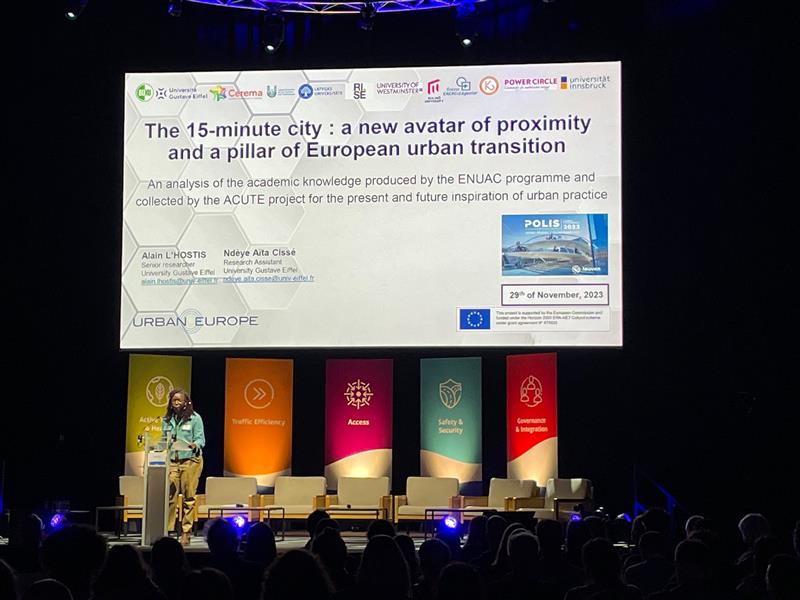Shaping the Future of Urban Mobility: Reflections on the 2023 Polis Conference
The 2023 Polis Conference in Leuven, Belgium, on 28 and 29 November 2023 was nothing short of a spectacular showcase of Europe’s cities’ commitment to sustainable urban mobility. With a record-breaking attendance of 900 (!) professionals, the event highlighted the increasing engagement of local authorities in addressing the challenges of sustainable mobility and transport innovation.

Unlike previous conferences, the atmosphere at Polis 2023 felt less like a family reunion and more like a widening community. Car manufacturers shared the stage with researchers, regulators and (vice) majors across the wide political spectrum. The boundaries between the public and private sectors blurred, and topics such as the economic dimension of transport and “how to win elections with sustainable mobility” took center stage.
Mobycon, in collaboration with our project partners the Dutch Province of Overijssel and Cycling Industries Europe (CIE), presented the EU project MegaBITS, making a good step forward to share the experience made with ITS (Intelligent Transport Systems) in cycling.
I personally had the privilege of moderating a parallel session titled “Mobility for Proximity.” This session delved into the concept of the often-cited 15-minute city, exploring the “marriage” mobility and urban planning.

It became a forum where the audience discussed with the speakers the question of how a conceptual framework of that size can possibly be put into practice, how conspiracy theories jeopardize the 15-minute city and how diverse needs ranging from the desire for more beer gardens to calm spaces and urban gardening can be considered or prioritized. Prof. Therese Steenberghen cautioned about the diversity of needs and the spill-over effects being generated, pointing out how seemingly reasonable ideas like urban gardening could inadvertently privatize public space.
The session featured outstanding speakers, including Ndèye Aïta Cissé discussing the implementation of the 15-minute city, Therese Steenberghen on Brussels’ 10-minute city model, Lisa Ruhrort (German Institute of Urban Affairs/Difu, Berlin) and others presenting ideas like Bicycle-Oriented Development and the transferability of Barcelona Superblock concepts.

Host and outgoing Polis presidency city Leuven succeeded to shine at the 2023 Polis Conference. Leuven presented itself as a model of urban planning and sustainable mobility. With a futuristic cycling spiral greeting the train traveler right by the central train station, its circulation plan and remarkable cycling share, Leuven demonstrated how infrastructure, thoughtful policies and collaboration with a range of local actors can create a vibrant and cyclist-friendly environment. Often-cited during the conference was Leuven’s circulation plan, which enables mobility while sparing the inner-city from unnecessary motor traffic. Despite initial opposition, Leuven managed to capitalize on the experience of the well-known case of the fellow-Flemish city of Ghent.
Looking ahead, I am very happy that Baden-Württemberg (wonderfully presented as “the Länd”) and Karlsruhe will host the 2024 Polis Conference in Germany before the conference will be hosted by the network’s new president, the City of Utrecht. Next year’s German city-“Länd” cooperation demonstrates a much sought-after sign of a cooperative spirit and a willingness to address pressing issues in the transport sector in times of continuous concerning news in German transport policy.
As the conference came to a close, it was evident that the community of cities and regions engaged in sustainable urban mobility is growing. Cities and regions increasingly use their voice in shaping the future of mobility. Maybe local authorities increasingly realize the value in knowledge and networks beyond national borders. And that is really good news. Because: If you’re not at the table, you’re on the menu.*
*I elaborated on the need for local authorities to engage on the European level in an earlier article published on LinkedIn, available here https://www.linkedin.com/pulse/europa-ist-kein-luxus-youre-table-menu-dagmar-k%25C3%25B6hler/?trackingId=KuLErMAbSSyszjCCODy9Vg%3D%3D).
 ">
">Dagmar Köhler
“Transport is not an end in itself but a key enabler to live, work, participate and thrive. In most parts of the world the potential of active travel is yet to be elevated. I am committed to help cities in Germany and abroad to connect with the Dutch experience and reflect on overarching goals and local necessities.”

